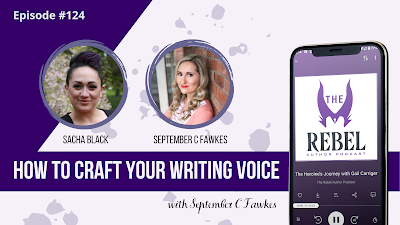In a lecture series on Youtube, #1 New York Times best-selling author Brandon Sanderson talks about the three P's of plot structure: Promise. Progress. Payoff.
Promises are particularly important in the beginning of the story, as they draw in the audience.
Progress keeps the audience invested, particularly through the middle of the story. If there is no sense of progress, then the reader feels as if the plot isn't going anywhere.
Payoff is what fulfills the promises of progress. It rewards the audience for sticking around, and if done properly, creates a feeling of satisfaction at the end of the story.
While all three can be tricky in their own right, many writers struggle to create a proper sense of progress, which can lead to saggy middles.
Luckily, Dramatica Theory breaks plot down into eight story points that essentially encapsulate progress.
If you apply them to your stories, your writing will always have progression through the middle.
1. Goal - Every story has a goal. It may be a goal of aspiration, such as becoming a top chef. Or it may be a goal of thwarting something, such as stopping a murderer. Whatever the case, a story's goal is what enables us to measure progress. If there is no goal, then what one does, doesn't really matter. We have no orientation or purpose, so there is no sense of moving forward or backward. The goal allows progress to happen.
2. Requirements - In order to achieve the goal, something is required. This can be broken down into two variations. In one, the characters must follow an order of steps, like following a set of directions. In the other, the characters must do or obtain things in any order, like a shopping list. The characters in Jumanji, for example, have the goal to restore the world to normal. The requirement is to win the game. But they must do this in a proper order--they can't skip turns.
3. Consequences - Consequences are what happen if a goal isn't achieved or hasn't yet been achieved. In some stories, the protagonist is trying to prevent the consequences, but in others, the protagonist is trying to stop the consequences that are already happening. Consequences might be thought of as overall stakes. In Ralph Breaks the Internet, if Ralph and Vanellope don't buy a new steering wheel for Sugar Rush, then its characters will be homeless.
4. Forewarnings - Forewarnings convey that the consequences are getting closer, becoming worse, or becoming permanent (depending on the story). If a dam is in danger of breaking, then a forwarning may be a crack that shoots out water. In Back to the Future, Marty's family slowly disappearing from a photograph works as a forewarning.
5. Dividends - Characters will likely receive small rewards for little successes along the journey to the goal. These are dividends. For example, on her journey to fight in the war in her father's place, Mulan is rewarded honor and a place in the military when she is able to retrieve an arrow from a wooden post that none of the men could get down.
6. Costs - Just as the journey may include dividends, it also entails costs. These have negative impacts on the protagonist's well-being. In order to win The Hunger Games, for example, one must be willing to kill others, which also includes psychological trauma. In order for Frodo to get to Mount Doom to destroy the Ring, he must suffer a loss of innocence. This is a cost.
7. Prerequisites - There are often certain essentials one must have, to pursue the goal at all. These are prerequisites. Prerequisites on their own don't bring the goal closer. This is why they aren't requirements. In Interstellar, a spaceship, equipment, and astronauts are needed to travel space to find a new home (goal). But simply having those things doesn't necessarily mean the characters are closer to discovering a liveable planet.
8. Preconditions - Preconditions do not directly relate to the goal. They are "non-essential constraints or costs placed on the characters in exchange for the help of someone who controls essential prerequisites." In Karate Kid, a prerequisite is that the protagonist must receive extra lessons from a master, but the master adds the precondition of doing chores. One does not technically need to do chores to do karate.
Some of these points are more direct--like requirements--while others are more indirect--like preconditions. The direct points will usually be more intense than the indirect. As you apply these elements to your stories, you'll create a sense of progress--especially through the middle, which will help make any story more satisfying.
***
This May, I will be teaching a class on "Structuring Your Cast of Characters" at the Storymakers Conference in Provo, Utah. This is my favorite writing conference that I've been to. The guests and instructors are great. Those running it are amazing. The attendees are wonderful. It will be taking place May 12th - 14th (and my class is scheduled for the 13th). If you can't attend in person, Storymakers now sells virtual tickets, so you can still have access to almost all the classes (some are only available in person). Mine will be available online as well as in person. To learn more or register, visit StorymakersGuild.org.
Also, this Wednesday (Feb. 9th), I will be on The Rebel Author Podcast with Sacha Black talking about voice. Here is the link if you want to tune in: https://sachablack.co.uk/the-rebel-author-podcast/
























0 comments:
Post a Comment
I love comments :)